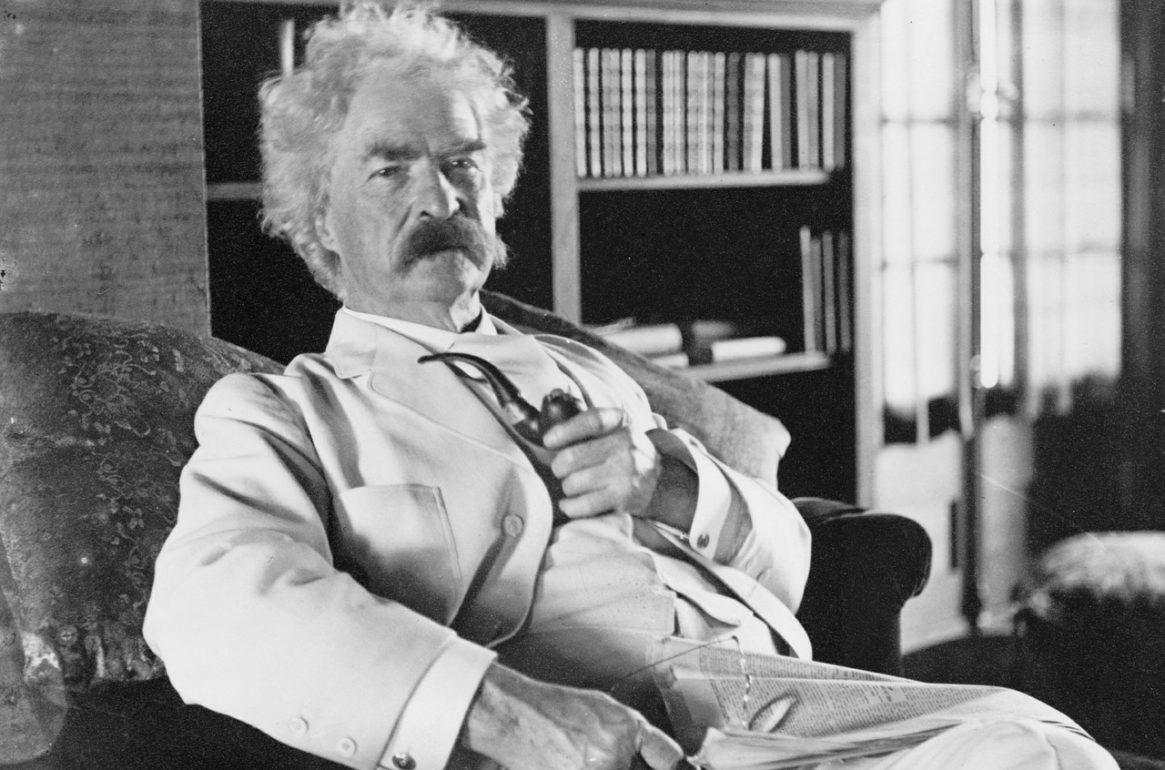Authors and Whisky: Mark Twain’s love affair with Scotch
Uncategorized
Remember a couple of weeks ago we said that we were going to start a new series of blog posts about writers and their love of whisky? Well here it is.
This Authors and Whisky series is going to look at writers (and musicians, artists and anybody in the public eye, really) and their love of the brown stuff.
Why?
Because, while we love telling you about the behind-the-scenes details of whisky making, about the latest bottlings in our collection, and about new and exciting things happening in the independent bottling scene, that’s not all there is to whisky.
We wanted an opportunity to celebrate what whisky means to people; to talk about how a nice dram can make your whole day better.
And what better way to look at the brilliance of whisky than to look at what it meant to some of the most articulate people that have ever committed pen to paper?
(And buckle up: there’s something about authors and whisky, because there are lot of them that absolutely love the stuff.)
Authors and Whisky: Week 1 – Mark Twain
Samuel Langhorne Clemens, aka Mark Twain, wasn’t just the father of the Great American Novel (well, according to Ernest Hemingway and William Faulkner, at least) and author of The Adventures of Huckleberry Finn and The Adventures of Tom Sawyer.
He was also an absolute sucker for whisky.
Want proof?
Here’s one of his immortal witticisms on the subject of whisky:
Too much of anything is bad, but too much of good whiskey is barely enough.
We can certainly get on board with that.
(Well, to an extent; too much whiskey (even the good stuff) usually gives us a banging head, nausea and aversion to light the next morning. Looks like we’re not cut out to write that novel after all, eh?)
Before we get onto Twain’s love for Scotch though, we need to start with his love for bourbon. (The link between American authors and whisky usually starts with bourbon, for obvious reasons.)
Twain started his professional and drinking career as a pilot of a steamboat on Mississippi River. As with most sailors and sea folk of the time, he spent a great deal of his time drinking.
But when the Civil War broke out, he headed off travelling (and, of course, drinking).
On his travels, he’d write for papers and publications, produce great novels and earn himself a prestigious reputation. But the word of his alcohol consumption earned his castigation from some reviewers.
And yet, Twain couldn’t be described as an alcoholic – at least not in comparison to other writers with heavy drinking habits (we’re looking at you again, Hemingway).
Yes, he may have drunk from the moment he got up to the moment he went to bed, but he was very keen to demonstrate that he wasn’t dependent on it and that could stop whenever he wanted to. (In fact, he frequently stopped drinking altogether to spite his critics.)
The truth was much simpler: he just absolutely loved whisky. (And cigars, too. He was not a man of great moderation, our Marky.)
And then, he travelled to Europe and his eyes were open to The Word.
In 1873 aboard the SS City of Chester, he discovered Scotch in the form of a cocktail. (Judging by his letter, it was an Old Fashioned.)
Just look at the letter he wrote to his wife after drinking his first Scotch. You can sense the excitement and jubilation:
‘Livy my darling, I want you to be sure & remember to have, in the bath-room, when I arrive, a bottle of Scotch whisky, a lemon, some crushed sugar, and a bottle of Angostura bitters. Ever since I have been in London I have taken in a wine glass what is called a cock-tail (made with these ingredients) before breakfast, before dinner and before going to bed… To it I attribute the fact that up to this day my digestion has been wonderful – simply perfect. It remains day after day and week after week as regular as a clock.’
(We tried this cocktail – in the name of science, of course – and the lemon can overpower the Scotch if you aren’t liberal with your libation. If you’re tempted to try out Twain’s recipe, we’d recommend a ratio of 3:1 of Scotch to Lemon with a cube of crushed sugar and a dash or two of bitters. It’s pretty good.)
And from there, his love for Scotch only continued to grow.
As he grew older, he moved on from the cocktail to neat Scotch (or a hot toddy) with his cigar.
Long gone was his love of bourbon too, he now called Scotch ‘my pet of all brews’ (hear, hear, Mark) and could be found drinking it all day long. (He smoked his cigars all day long too – once famously declaring ‘I smoke in moderation. Only one cigar at a time.’ It’s estimated that he smoked 22 cigars a day, almost every day.)
Andrew Carnegie, the Scottish-American industrialist responsible for the boom of the American steel trade and one of the richest men in America, began to send Twain casks of Scotch. (Which, of course, made Twain incredibly happy.)
Twain once wrote a thank you letter, with his typical wit shining through:
‘I got the whisky, dear Saint Andrew, and something happened to it. Always does.’
After another cask, he wrote:
‘Your whisky came at the right time. Of course, your whisky never comes at the wrong time.’
In short, Mark Twain wasn’t just responsible for the Great American Novel, he was responsible for some of the greatest quotes about whisky ever written. To prove it, we’ll leave you with one last witticism and – if we’re honest – sound piece of advice.
I always take Scotch whiskey at night as a preventive of toothache. I have never had the toothache; and what is more, I never intend to have it.



